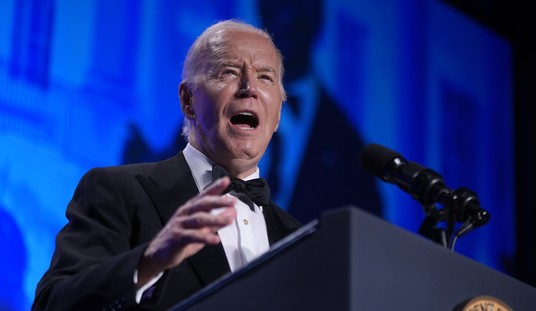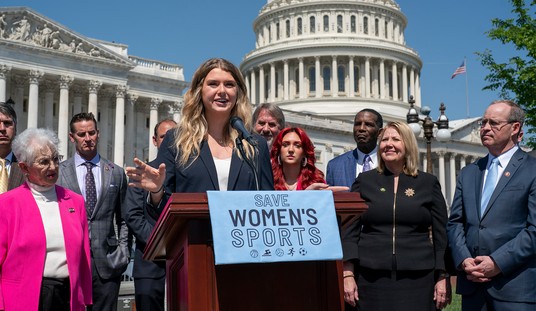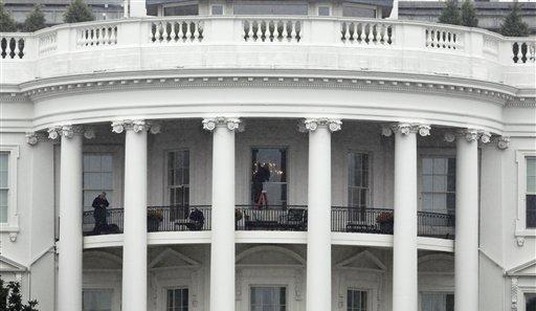All conservatives and libertarians agree that government should not set wage requirements on private enterprise. That would violate the foundation of a free market economy. But should industries and special interest groups get to use the power of government to tilt our immigration system in a way that will actively depress wages? Is that free market doctrine?
I’ve been looking to find someone to come out to my house and do an assortment of outdoor work on gutters, downspouts, and siding. I can do most of the work myself, but some of the repairs need to be done in precarious positions that would require me to place a ladder on steep ground. The problem is that nobody will come out for a half days’ work for less than a few hundred dollars. In light of this “labor shortage” I plan to petition the government to flood the country with poor people from rough areas in the world. They will do any job for 10 bucks. Why shouldn’t we solve the “labor shortage” in this manner?
The free market is dictated by the ‘natural order of things.’ Obviously, the natural order of things as it relates to our immigration policy is not so easy to define. But it would be safe to say that for special interests to demand that we double our already record levels of immigration – to the detriment of the country at large and patriotic assimilation – is a manifestation of an anti-free market intervention into the natural order of things. No country will naturally implement an immigration system that makes assimilation impossible and burdens the broader tax base with too many low-wage earners in too short a period of time.
Undoubtedly, there might be a need for some guest workers in specific industries to replace, not augment, low-skilled immigration. But the assertion that there is a widespread labor shortage is greatly exaggerated by those who desire to use our immigration system to artificially depress wages. That is just as anti-free-market as using government to artificially inflate wages.
Case in point? San Joaquin Valley growers.
Fears of a potential farm labor shortage have caused San Joaquin Valley growers to boost wages to as much as $10 an hour this year to attract and keep workers for the harvest season.
With the farm-labor pool already tight and crops ready to be picked, growers are scrambling to secure their supply of workers.
“It is getting very competitive out there and employers are having to offer incentives to find the labor they need,” said Oscar Ramos, a grape farmer and Kingsburg-based farm-labor contractor. “And one of those incentives is higher wages.”
Farmers and agriculture industry leaders say wages have risen $1 to a $1.50 an hour this year compared to last year, or as much as 12%. Among Valley farmers, hourly wages are hovering between $9 and $10 an hour, which is higher than California’s minimum wage of $8.
Wages could go even higher. In September 2012, the average hourly earnings for San Joaquin Valley farm workers rose to $12.09 during the peak of the harvest season.
Hence, the agricultural labor shortage is vastly exaggerated. There is a shortage of people who will work for below market wages on the farms the same way there is a shortage of people who will come out and do work on the exterior of my house for $30. There are plenty of people who will do the work for a higher wage.
Now, we can always import an infinite number of people from destitute parts of the world who will dramatically depress wages. That would definitely satisfy the needs of some industries and would most likely lower the cost of lettuce and tomatoes. But that would not represent free market policy; it would represent corporate welfare.
Ironically, the gang bill will distort the labor market to such a degree that it necessitated the creation of an entire wage control regime both for low and high skilled workers. Yes, the “free market” libertarians are supporting a bill that will create a new Bureau of Immigration and Labor Market Research to analyze unemployment and wages, promulgating wage requirements according to artificial benchmarks.
There’s no doubt that when immigration ensues in a gradual and orderly manner, in a way that benefits the country at large, it will stimulate the economy and compensate for any small reduction in wages. And to suggest that we limit immigration well below our historic average for the purpose of keeping wages higher would represent anti-market policy. But when our immigration system is tilted so much as to let in millions of low-skilled workers within a short period of time, we ostensibly have a government-mandated maximum wage. That is just as offensive as a minimum wage.
Cross-posted from The Madison Project













Join the conversation as a VIP Member